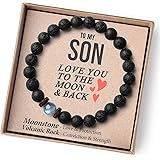Vaccines for adults: Which do you need?
Vaccines offer protection from infectious diseases. Find out how to stay on top of the vaccines recommended for adults.
You may think that because you’re not a kid anymore, you don’t have to worry about shots. But adults need them, too. Here’s how to stay on top of your vaccines.
What factors might affect my vaccine recommendations?
The Centers for Disease Control and Prevention (CDC) recommends vaccines for adults based on age, prior vaccinations, health, lifestyle, occupation, travel destinations and sexual activity.
How can I check my vaccination status?
To gather information about your vaccination status, talk to your parents or other caregivers. Check with your health care provider’s office. If necessary, you may check with previous health care organizations where you received care. Or check with your schools or employers who required vaccinations. You could also contact your state health department to see if it has a registry that includes adult immunizations.
If you can’t find your records, your health care provider might be able to do blood tests to see if you are immune to certain diseases that can be prevented by vaccines. You might need to get some vaccines again.
What vaccines do adults need?
Talk to your health care provider about your specific needs. Adult vaccines to consider include:
- COVID-19. The coronavirus disease 2019 (COVID-19) vaccine might prevent you from getting COVID-19 or from becoming seriously ill or dying due to COVID-19.
- Flu (influenza). To prevent the flu, the CDC recommends annual flu vaccination for everyone ages 6 months or older. Adults age 50 and older should not get the nasal spray flu vaccine. The flu can cause serious complications in older adults.
- Hepatitis B. The CDC recommends all adults ages 19 to 59 receive the hepatitis B vaccine. The vaccine also is recommended for adults 60 and older who have risk factors for hepatitis B. It is not specifically recommended for those age 60 and older without known risk factors. But if you are in that group, you may receive the hepatitis B vaccine if you want it. Hepatitis B is a disease that affects the liver.
- Human papillomavirus (HPV). The CDC recommends the HPV vaccine for girls and boys ages 11 or 12. Teens and young adults who begin the vaccine series later, at ages 15 to 26, should receive three doses of the vaccine. The Food and Drug Administration has approved the HPV vaccine Gardasil 9 for males and females ages 9 to 45. HPV is a common virus that can lead to cancer.
- Pneumococcal vaccine. The CDC recommends the pneumococcal vaccines — there are two — for adults age 65 and older. Younger adults at increased risk of pneumococcal disease also might need a dose of the vaccine. Pneumococcal disease causes infections, such as pneumonia, meningitis and bloodstream infections.
- Shingles. To prevent shingles, the CDC recommends the vaccine Shingrix for healthy adults age 50 and older. It’s given in two doses. While not life-threatening, shingles can be very painful.
- Tetanus, diphtheria, pertussis (Tdap). One dose of Tdap is routinely given at age 11 or 12. If you’ve never had a Tdap vaccine, the CDC recommends getting it as soon as possible. One dose of Tdap vaccine is also recommended during each pregnancy, ideally between weeks 27 and 36. Tdap can protect you from lockjaw (tetanus), whooping cough (pertussis) and diphtheria, which can lead to breathing problems. A booster is recommended every 10 years.
To help you keep track of your vaccines, ask your health care provider for an immunization record form. Bring the form with you to all of your health care visits. Ask your provider to sign and date the form for each vaccine you receive.
From Mayo Clinic to your inbox
Sign up for free, and stay up to date on research advancements, health tips and current health topics, like COVID-19, plus expertise on managing health.
To provide you with the most relevant and helpful information, and understand which information is beneficial, we may combine your email and website usage information with other information we have about you. If you are a Mayo Clinic patient, this could include protected health information. If we combine this information with your protected health information, we will treat all of that information as protected health information and will only use or disclose that information as set forth in our notice of privacy practices. You may opt-out of email communications at any time by clicking on the unsubscribe link in the e-mail.
Mayo Clinic Minute: Why vaccines are especially important for older people
Ian Roth: Aging is inevitable, and parts of the process can be unpleasant.
Gregory Poland, M.D., Vaccine Research Group, Mayo Clinic: “As you get older, your immune system gets weaker. That’s why we see more severe infections in older people.”
Ian Roth: Dr. Gregory Poland, who heads up the Mayo Clinic Vaccine Research Group, says it’s why vaccines become especially important as you get older. And it’s why his team at Mayo Clinic looks for ways to tailor vaccines to better protect older people.
Dr. Poland: “There are three influenza vaccines, one shingles vaccine, and one hepatitis B vaccine that have been designed around those issues and that work better than the standard vaccines in older people.”
Ian Roth: He says it’s important to note that these vaccines aren’t perfect and won’t always prevent you from getting an illness, but they do protect you from complications from illnesses like the flu.
Dr. Poland: “So you might have had sniffles or fever. You were home for a day or two from work, but you didn’t get hospitalized. You didn’t get pneumonia. And you didn’t die.”
Ian Roth: For the Mayo Clinic News Network, I’m Ian Roth.
Sept. 14, 2022
- Recommended adult immunization schedule for ages 19 years or older, United States, 2019. Centers for Disease Control and Prevention. https://www.cdc.gov/vaccines/schedules/hcp/imz/adult.html. Accessed Aug. 17, 2022.
- Human papillomavirus (HPV) vaccination: What everyone should know. Centers for Disease Control and Prevention. https://www.cdc.gov/vaccines/vpd/hpv/public/index.html. Accessed July 15, 2019.
- What everyone should know about shingles vaccines. Centers for Disease Control and Prevention. https://www.cdc.gov/vaccines/vpd/shingles/public/index.html. Accessed July 15, 2019.
- Keeping your vaccine records up to date. Centers for Disease Control and Prevention. https://www.cdc.gov/vaccines/adults/vaccination-records.html. Accessed July 12, 2019.
- AskMayoExpert. Human papillomavirus (HPV) vaccination. Rochester, Minn.: Mayo Foundation for Medical Education and Research; 2018.
- Live attenuated influenza vaccine [LAIV] (the nasal spray flu vaccine). Centers for Disease Control and Prevention. https://www.cdc.gov/flu/prevent/nasalspray.htm. Accessed July 15, 2019.
- Pneumococcal vaccination. Centers for Disease Control and Prevention. https://www.cdc.gov/pneumococcal/vaccination.html. Accessed July 15, 2019
- Tetanus, diphtheria, pertussis (tdap)VIS. Centers for Disease Control and Prevention. https://www.cdc.gov/vaccines/hcp/vis/vis-statements/tdap.html. Accessed July 15, 2019.
- Frequently asked questions about estimated flu burden. Centers for Disease Control and Prevention. https://www.cdc.gov/flu/about/burden/faq.htm. Accessed July 15, 2019.
- FDA approves expanded use of Gardasil 9 to include individuals 27 through 45 years old. U.S. Food and Drug Administration. https://www.fda.gov/NewsEvents/Newsroom/PressAnnouncements/ucm622715.htm. Accessed July 15, 2019.
- Schedule changes and guidance. Centers for Disease Control and Prevention. https://www.cdc.gov/vaccines/schedules/hcp/schedule-changes.html#adult. Accessed Aug. 17, 2022.
- Benefits of getting a COVID-19 vaccine. Centers for Disease Control and Prevention. https://www.cdc.gov/coronavirus/2019-ncov/vaccines/vaccine-benefits.html. Accessed Aug. 17, 2022.
- Hepatitis B vaccination of adults. Centers for Disease Control and Prevention. https://www.cdc.gov/hepatitis/hbv/vaccadults.htm. Accessed Aug. 17, 2022.
.
Note: This article have been indexed to our site. We do not claim legitimacy, ownership or copyright of any of the content above. To see the article at original source Click Here













